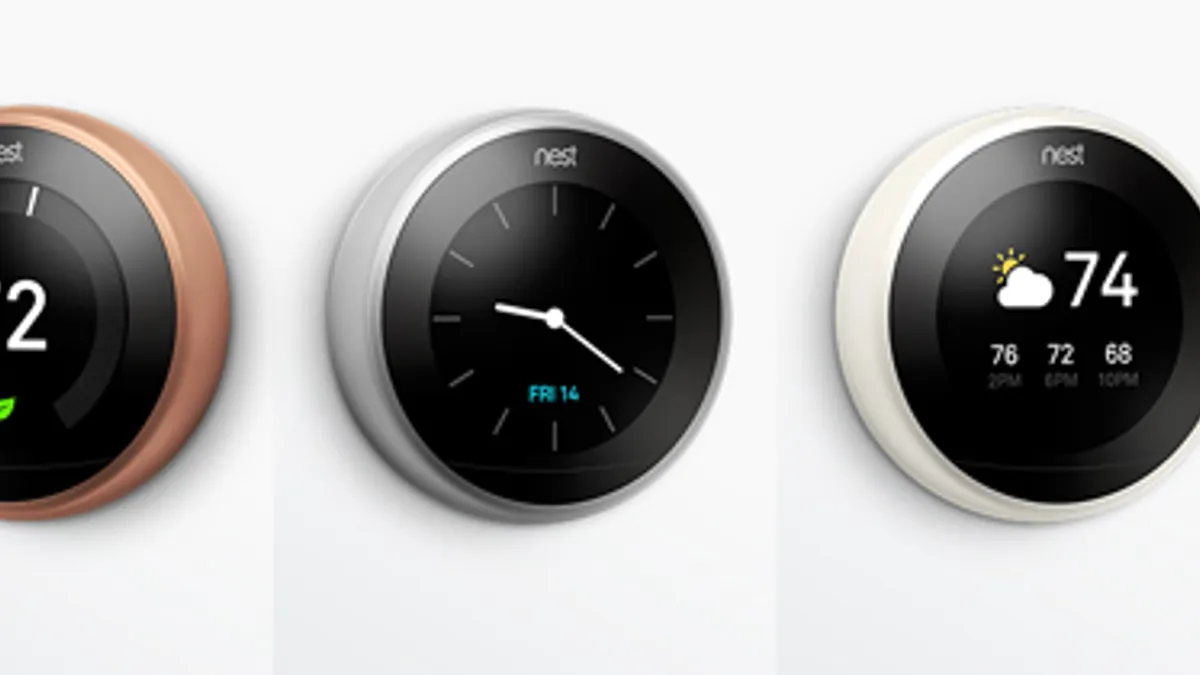Dive Brief:
- Austin, Texas, is now requiring all new home construction to include smart thermostats with either a wi-fi or cable internet connection, putting more customers in closer connection with the city's utility and demand management programs, KUT 90.5 reports.
- The devices are high on consumer wish lists, and Austin NPR affiliate KUT 90.5 reported the decision to make them mandatory on new construction was not a controversial issue
- While the first generation of home energy management devices got off to a rocky start, new functionality has turned smart thermostats into a boom industry with an annual value expected to top $2 billion by 2023.
Dive Insight:
Austin continues to show off its progressive bonafides, now ensuring all new-home construction comes complete with an internet-connected thermostat. The ordinance went into effect last month, and specifies that "the thermostat controlling the primary heating or cooling system of the dwelling unit shall be capable of connecting to the internet via either a cable or WiFi connection and allow cooling and heating set points to be altered remotely."
The city's utility, Austin Energy, is offering an $85 rebate for customers with the thermostats who sign up for their PowerSaver demand response program.
The utility has about 50,000 customers in the program, but KUT reported some participants in older homes have dropped out, as small temperature changes can feel more significant without adequate insulation.
Austin Energy's program, which works with a range of major thermostat manufacturers like Nest and Ecobee, allows the utility to adjust thermostats up to 4 degrees when demand spikes, usually about 15 days a year.
The home energy management market's growth began slow, but is now accelerating. Last year, Manifest Mind predicted the HEM market to reach an annual value of $2.2 billion in North America by 2022, more than doubling the industry's value today. That analysis followed a report from Navigant that found global revenue from HEM products and services was expected to grow from $846 million annually in 2013 to $2.4 billion in 2023.
Smart Grid Consumer Collaborative President and CEO Patty Durand told Utility Dive that smart thermostats are something consumers now seek out.
“Smart thermostats are probably the best gateway to engage consumers," said Durand. "If you're going to pick one thing, the research points towards thermostats. It's something everyone is already aware of. Very high numbers of people want one."










